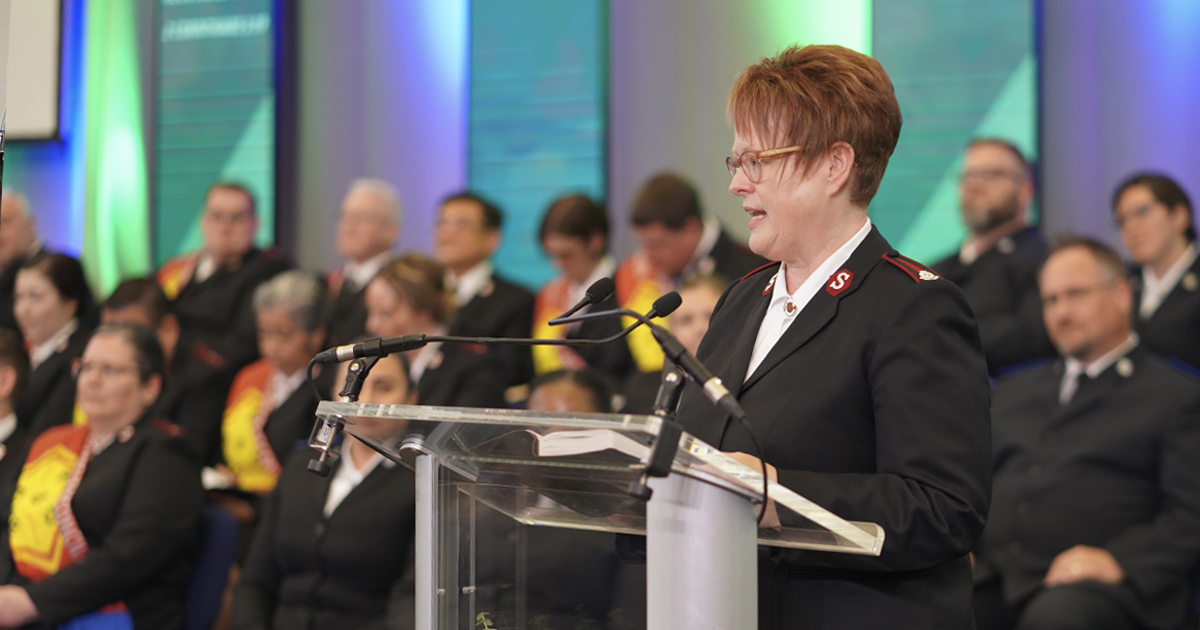 In their pre-marriage counselling, a young bride-to-be boasted that she and her fiancé had been going out for two years and had never quarrelled. “If a difference of opinion arises and I'm right,” she said, “my fiancé gives in.”
In their pre-marriage counselling, a young bride-to-be boasted that she and her fiancé had been going out for two years and had never quarrelled. “If a difference of opinion arises and I'm right,” she said, “my fiancé gives in.”
“And what if he's right?” asked the counsellor.
“Oh,” she responded. “That's never happened!”
If we are going to experience authentic, healthy relationships in our family lives, we must face the fact that, unlike the bride-to-be, we will all face conflict. The Apostle Paul acknowledges that we will experience anger, but he also says that we are responsible for what we do with it: “In your anger do not sin” (Ephesians 4:26).
In some households, family conflict may lead to healthy dialogue and compromise. For others, it means shouting, screaming, name-calling, threats or even physical violence. How can we avoid these hurtful behaviours and turn conflict into something constructive?
Here are tips to healthy conflict resolution as found in Denise Van Eck's article The Conversation You Dread (Leadership, Fall 2004), and my own Couple Care Pre-Marriage Manual:
Identify the issue. Stop long enough to get in touch with what has pushed your buttons. Because anger can appear in a split second we often miss the hurt behind it.
Clarify your intentions. Is your goal to set him straight? Get your way? These one-sided expectations will not lead to positive results. Instead of seeing confrontation as a way to “fix” someone, try seeing it as an opportunity for everyone to grow.
Begin with empathy. When preparing for a difficult conversation, ask yourself: “Can I put myself in her shoes for a moment?” By taking a moment to see the other side of the situation, you can avoid the heat of anger.
Choose the right time. Make sure you can both give your undivided attention to the issue. If needed, dismiss yourself respectfully by saying something like, “I am so angry right now that I am afraid I might say something I regret. Let's discuss this after I cool down a bit.” Return to the issue soon. Tomorrow is too late. Set the time and honour it.
Hold up the mirror. Get real with yourself. How have you contributed to this argument? Are you bringing any of your own issues into it? Is the person you are confronting exhibiting behaviour that you struggle with yourself? Practise humility by taking responsibility for your contribution to the conflict. Own up before you show up.
Affirm the relationship. Remind each other that you are attacking an issue, not the person. Say things like: “We are in this together” and “We care enough about our relationship to work through this difficult issue.”
Take turns sharing your views. While one talks, the other listens. Interruptions should not be permitted unless clarification is needed. Use “I” statements―such as “I feel like … ”― to shift the emphasis off blaming, which can easily result in defensiveness.
Reflect the other perspective. Being a listener can be hard work. Often we can be thinking ahead to our response or wanting to interrupt to make our point known. Listen carefully and then restate the other person's argument to show you have listened and know where she is coming from.
Brainstorm together. List some solutions that can be applied to the situation. Working together requires both parties to give up the need to “win.” The goal is to find a solution that works while keeping the harmony of the relationship intact.
Practise forgiveness. Holding on to resentment is like a tug of war. Two people are pulling different ends of the rope, but when one lets go, the war is over. Forgiveness is a choice that brings peace and contentment.
Move on. Once the issue has been resolved, agree to put it to rest. You may not be able to forget about it and you may feel the lingering hurt, but you can determine not to visit the issue again. Bringing up past hurts that have already been dealt with is like tearing scabs off healing wounds.
Trust the Holy Spirit. It's tempting to feel that it's all up to you to get the issues solved. The truth is you can't control what another person thinks, feels or believes. You can bring truth and love, but it is the Spirit of God who changes a person's heart.
 Major Bob Armstrong and his wife, Penny, are the corps officers of The Willows, a community church of The Salvation Army in Langley, B.C. The parents of three young men, Bob and Penny have ministered as a team for 26 years in various capacities: pastors, church planters, facilitators of reconciliation, counsellors, educators and conference speakers. Both are registered clinical counselors and authors of the Couple Care Pre-Marriage Manual, Along the Way and Broken Church Restored. Along the Way: A Practical Guide to Help Couples can be purchased for $12 plus shipping by emailing Bob_Armstrong@can.salvationarmy.org.
Major Bob Armstrong and his wife, Penny, are the corps officers of The Willows, a community church of The Salvation Army in Langley, B.C. The parents of three young men, Bob and Penny have ministered as a team for 26 years in various capacities: pastors, church planters, facilitators of reconciliation, counsellors, educators and conference speakers. Both are registered clinical counselors and authors of the Couple Care Pre-Marriage Manual, Along the Way and Broken Church Restored. Along the Way: A Practical Guide to Help Couples can be purchased for $12 plus shipping by emailing Bob_Armstrong@can.salvationarmy.org.









Comment
On Friday, August 14, 2009, john c irvine said:
Leave a Comment